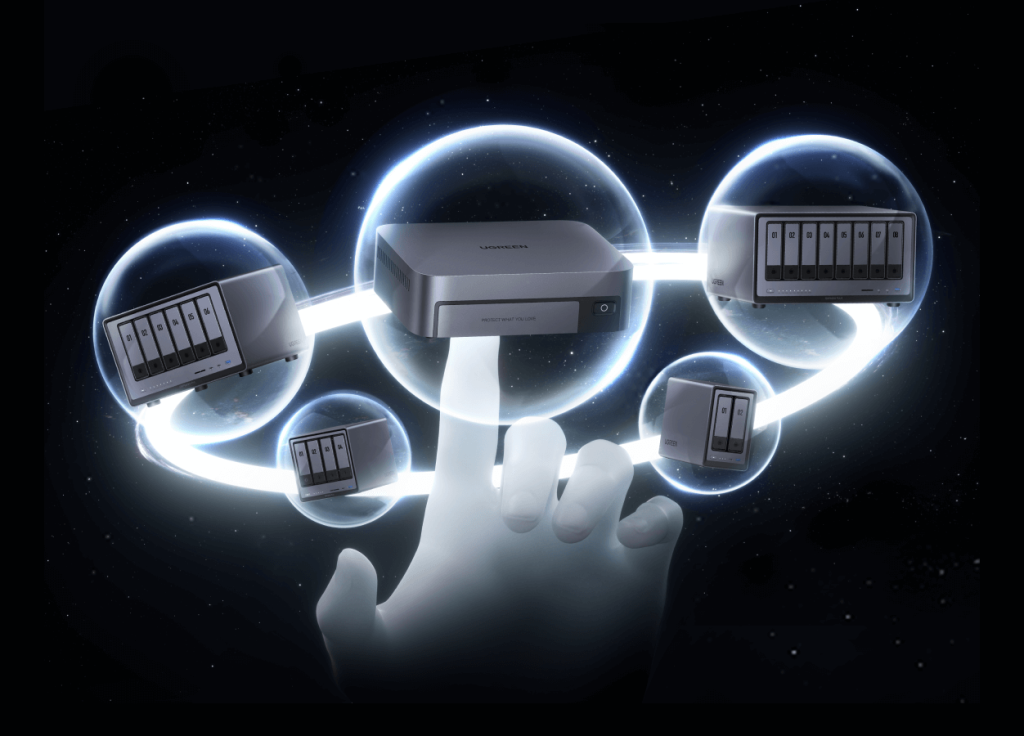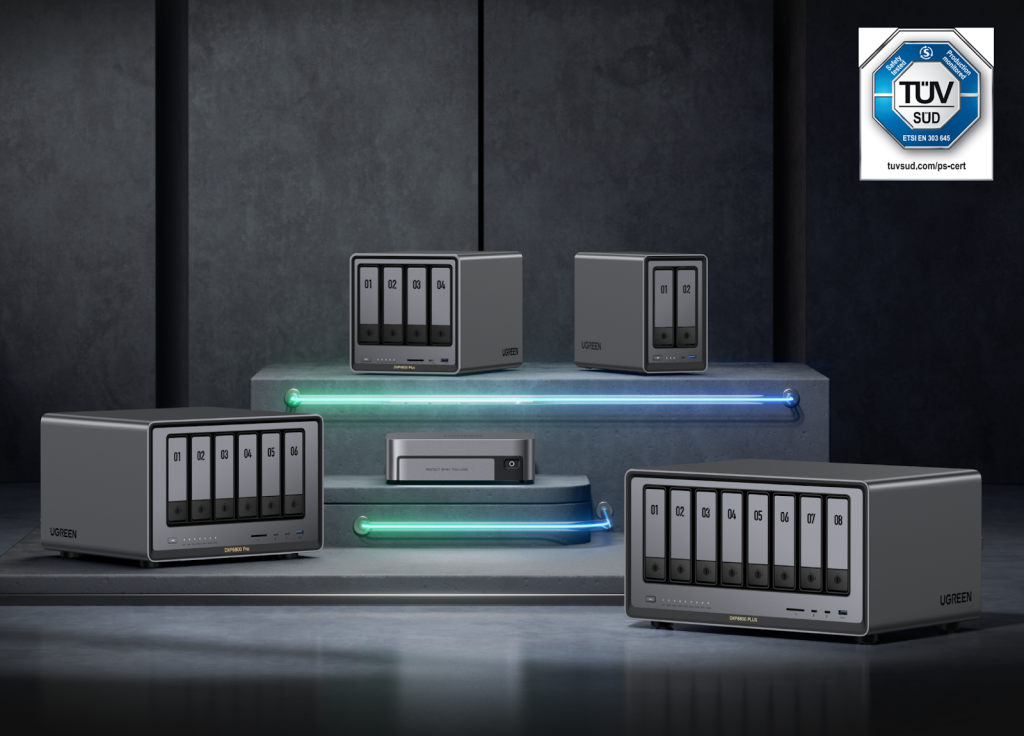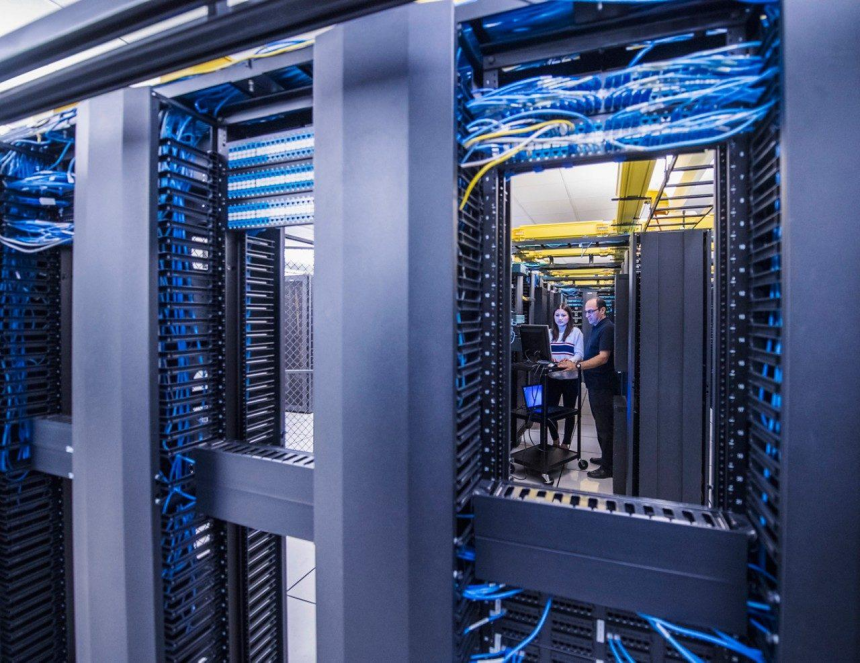Imagine losing years of crucial business data in an instant. For one small marketing agency, this nightmare became reality when their external hard drive crashed, taking with it client projects, financial records, and irreplaceable creative assets. Such devastating data losses affect countless small businesses yearly, often leading to significant financial damage and lost customer trust. As digital assets become increasingly vital for business operations, the need for reliable NAS storage for home has never been more critical. Network Attached Storage (NAS) systems offer small businesses an enterprise-grade solution at an accessible scale. By implementing a NAS system, small businesses can safeguard their digital assets while improving team collaboration and operational efficiency.

The Critical Data Challenges Facing Small Businesses
Small businesses today face unprecedented data management challenges that threaten their very survival. The widespread practice of storing critical files across multiple devices, personal computers, and various cloud services creates dangerous fragmentation that makes data tracking and protection nearly impossible. When disaster strikes, whether through hardware failure, cyberattacks, or natural disasters, fragmented storage often results in incomplete or impossible recovery efforts. This vulnerability is compounded by inadequate backup systems, leaving many businesses unable to restore critical operations after data loss incidents. The financial impact is staggering – studies show that small businesses lose an average of $100,000 per ransomware incident, with downtime costs adding up to thousands per hour. Team collaboration suffers as well, with employees struggling to access and share files efficiently across disparate storage locations. Moreover, evolving data protection regulations like GDPR and CCPA impose strict compliance requirements that many small businesses struggle to meet with their current storage solutions, risking heavy fines and legal complications. These challenges highlight the urgent need for a comprehensive data management strategy that addresses both security and operational efficiency.

Centralized File Sharing Solutions for Team Efficiency
Implementing Secure Collaboration Workflows
A centralized NAS storage system transforms how small business teams work together by providing instant access to shared files from any authorized device. Team members can simultaneously work on documents while maintaining version control, eliminating the confusion of multiple file copies and email attachments. The system’s permission controls ensure sensitive data remains protected, with administrators able to set granular access levels for different departments or projects. Mobile access capabilities allow staff to securely retrieve and update files while working remotely or meeting clients, maintaining productivity beyond office walls.
Setting up secure collaboration starts with creating a structured folder hierarchy based on departments or projects. Begin by establishing shared folders with appropriate access levels – read-only for reference materials, full access for active project files. Implement user groups to streamline permission management and maintain clear audit trails of file modifications. Regular activity monitoring through automated reports helps identify potential security risks while ensuring compliance with data handling policies. The system integrates seamlessly with popular business tools like Microsoft Office and Google Workspace, enabling teams to maintain existing workflows while gaining enhanced file management capabilities.
Automated Backup Systems for Data Integrity
Configuring Bulletproof Backup Strategies
Implementing automated backup systems forms the cornerstone of robust data protection for small businesses. With scheduled backups running silently in the background, critical files are continuously protected without disrupting daily operations. The system maintains multiple versions of files, allowing businesses to recover from accidental deletions or ransomware attacks by rolling back to clean copies. This versioning capability proves invaluable when needing to reference or restore previous document iterations, especially for long-term projects or legal requirements.

A comprehensive backup strategy begins with implementing RAID configurations that provide immediate hardware redundancy. Following the industry-standard 3-2-1 backup rule, businesses should maintain three copies of data, stored on two different media types, with one copy kept offsite. NAS systems facilitate this by automatically synchronizing with cloud storage services for offsite backup while maintaining local copies for quick recovery. The system’s built-in ransomware protection features detect suspicious file activities and prevent unauthorized encryption of backed-up data. Multi-device coverage ensures that data from workstations, laptops, and mobile devices is automatically consolidated and protected, eliminating gaps in backup coverage that could lead to data loss.
For optimal protection, configure incremental backups to run nightly, capturing only changed files to minimize system load and storage requirements. Set up separate backup schedules for different data types – hourly for critical business documents, daily for project files, and weekly for archival data. Regular backup verification processes ensure stored data remains recoverable, while automated alerts notify administrators of any backup failures or storage capacity issues requiring attention.
Enterprise Features for Small Business
Data Integrity Protection Mechanisms
Modern UGREEN NAS systems bring enterprise-grade storage capabilities within reach of small businesses through a comprehensive feature set that prioritizes data protection. The system architecture supports multiple RAID configurations, allowing businesses to balance performance and redundancy based on their specific needs. Advanced encryption protocols safeguard data both at rest and in transit, utilizing AES-256 encryption to protect sensitive information from unauthorized access. The scalable storage design accommodates growing data needs, with hot-swappable drive bays enabling seamless capacity expansion without system downtime.
At the core of modern data integrity features lies a sophisticated error detection and correction system. The built-in checksum verification continuously monitors stored data, automatically identifying and flagging potential corruption issues before they impact business operations. The system’s proactive bad sector management relocates data from deteriorating drive sectors, preventing data loss from gradual hardware degradation. Self-healing storage capabilities automatically repair detected inconsistencies, maintaining data integrity without manual intervention. Remote management capabilities enable administrators to monitor system health, adjust configurations, and respond to alerts from anywhere, ensuring continuous data protection even with limited IT resources.
The system’s intelligent storage optimization includes automated data tiering, moving frequently accessed files to faster storage areas while archiving less-used data to maximize performance. Advanced caching mechanisms reduce access latency for commonly used files, while built-in deduplication and compression features optimize storage utilization. These enterprise-class features operate seamlessly in the background, providing small businesses with professional-grade data protection without requiring specialized technical expertise to manage.
NAS vs. Cloud Services: Balanced Data Strategy
While cloud storage offers convenience, NAS systems provide distinct advantages that make them essential for a balanced data strategy. From a cost perspective, NAS eliminates recurring subscription fees after initial hardware investment, offering significant long-term savings compared to ever-increasing cloud storage costs. Performance-wise, NAS delivers superior data access speeds with sub-millisecond latency for local network operations, compared to cloud services that depend on internet bandwidth and can experience delays. The ideal approach combines NAS for primary storage and critical operations with cloud services for offsite backup, creating a hybrid infrastructure that maximizes both security and accessibility. This strategy gives businesses complete ownership and control over their data while maintaining the flexibility to leverage cloud services when needed. Furthermore, NAS systems ensure business continuity during internet outages, allowing teams to maintain productivity regardless of external connectivity issues.

Protecting Your Business Future Through Smart Storage Solutions
In today’s digital business landscape, protecting critical data isn’t optional – it’s essential for survival. A robust NAS solution offers small businesses a powerful combination of enterprise-grade security features and user-friendly management tools that make professional data protection accessible and affordable. By implementing a NAS system, businesses gain not just secure storage, but a complete data management platform that enhances team collaboration, ensures business continuity, and maintains regulatory compliance. The time to act is now – every day without proper data protection puts your business at risk. Take the first step by assessing your current data storage needs and exploring how a NAS solution can safeguard your digital assets. With scalable storage options and future-proof features, NAS systems provide the foundation for sustainable business growth while keeping your valuable data safe and accessible for years to come.







